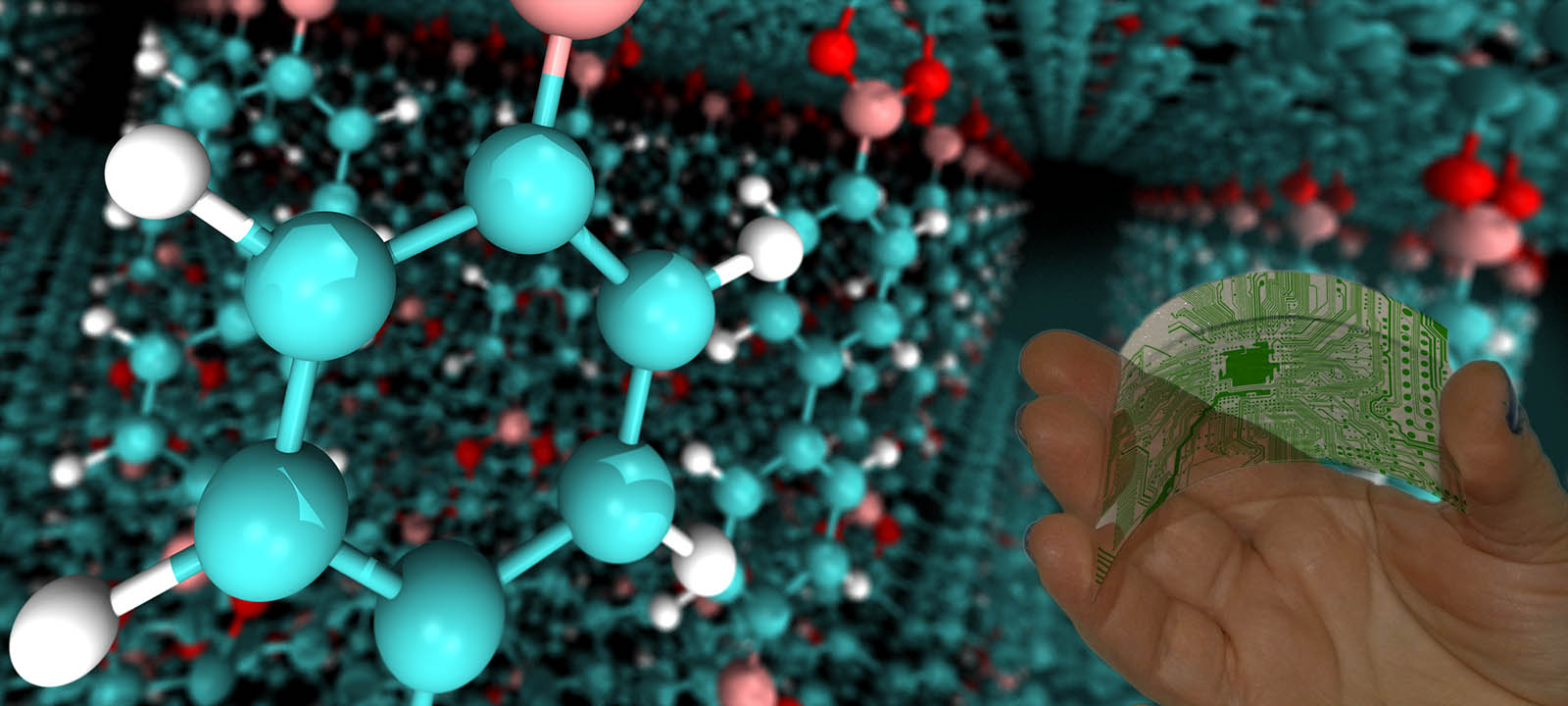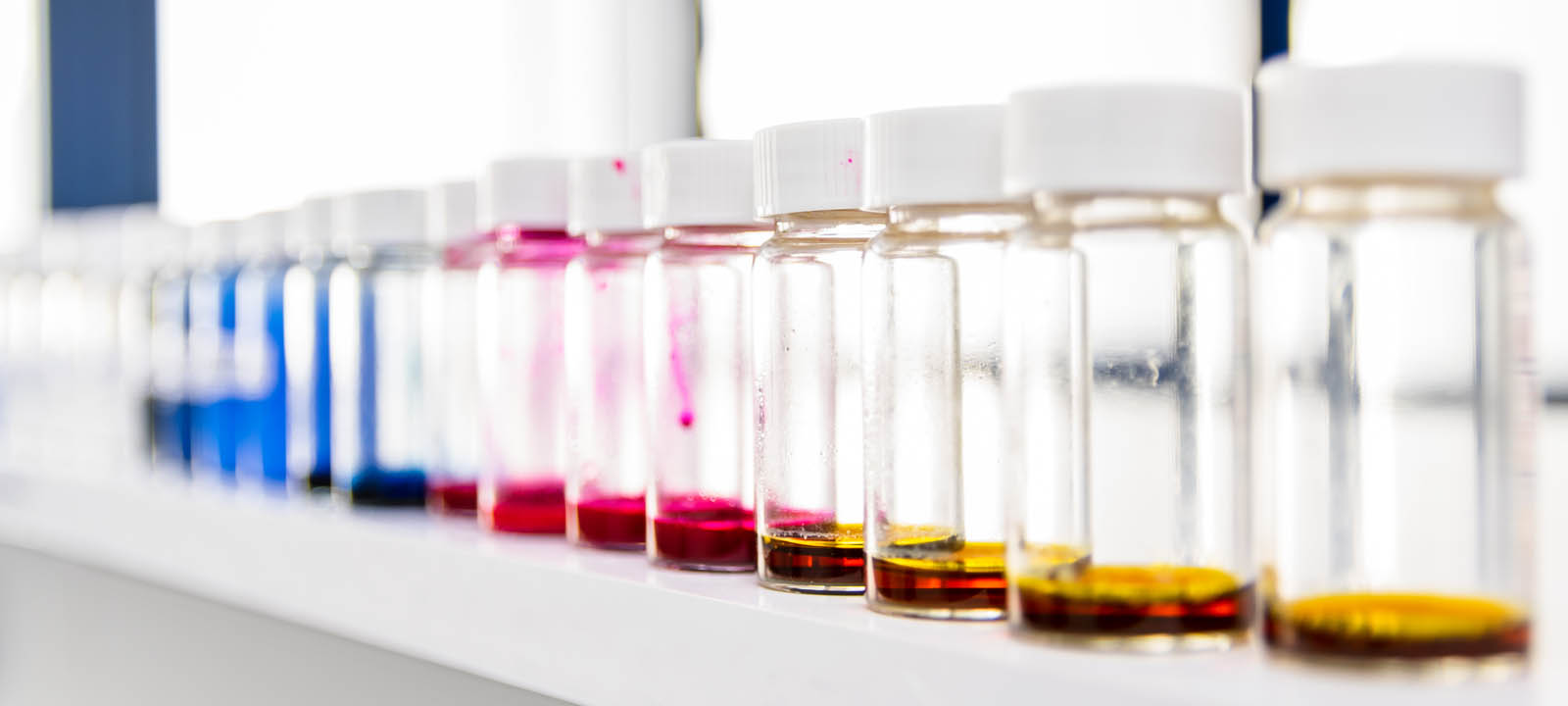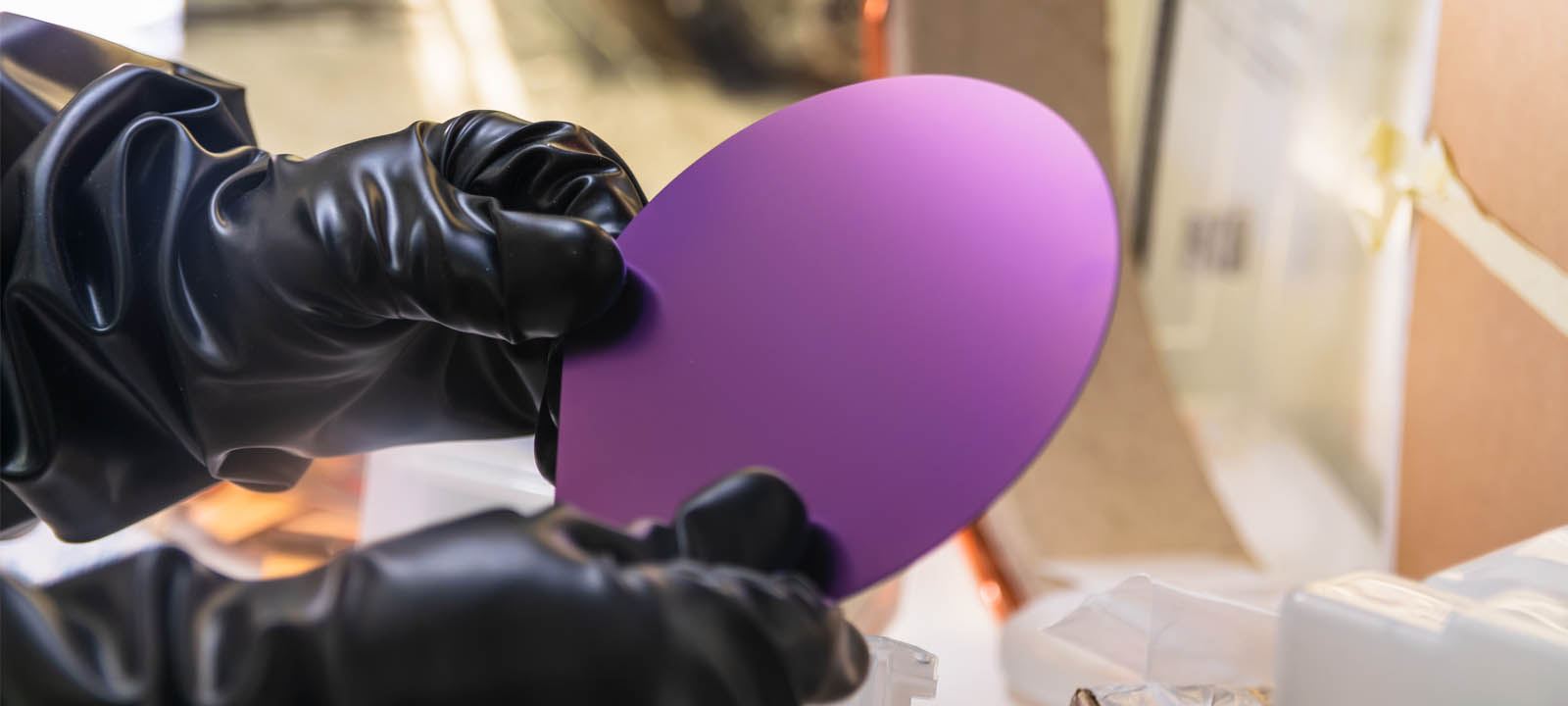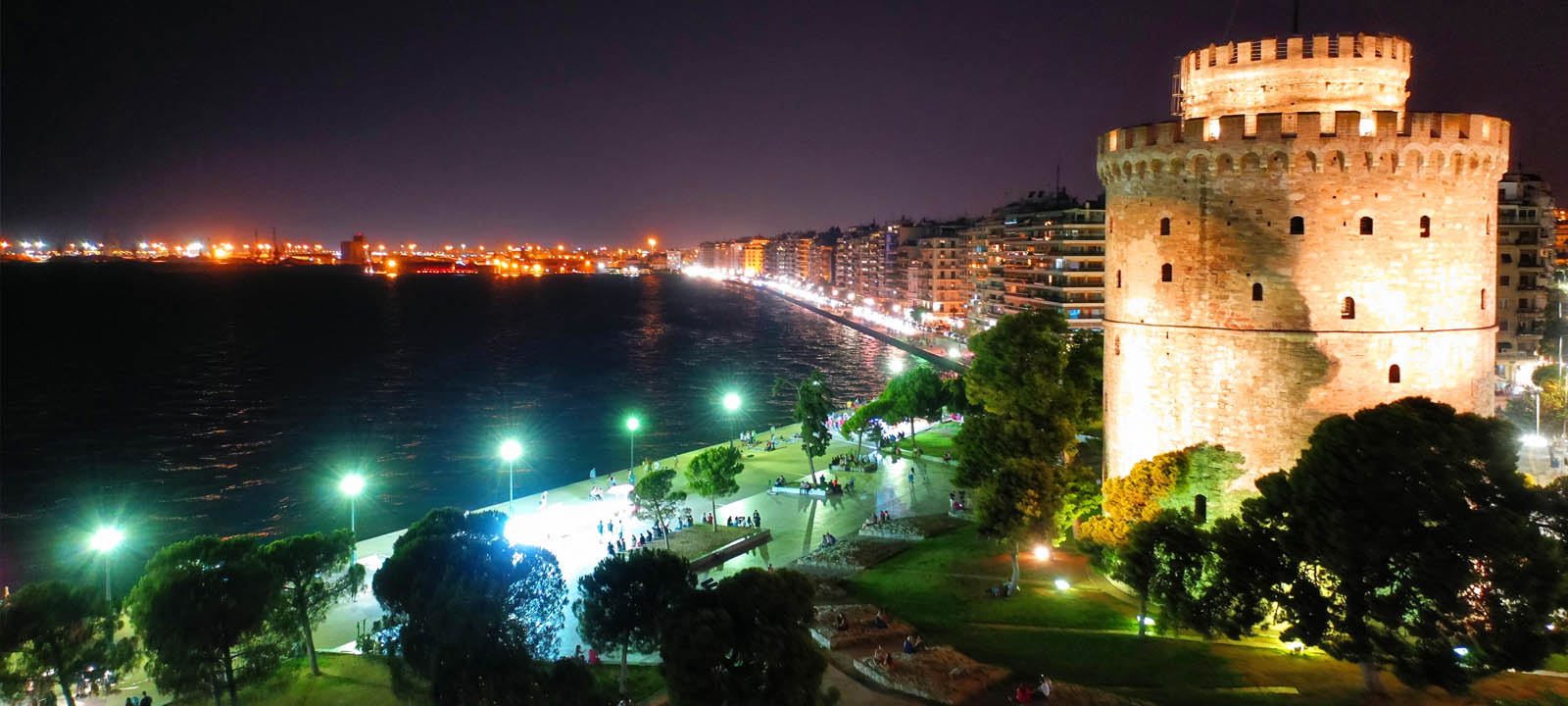Materials by Design
Computational design and identification of molecular structures with promising electronic properties for specific applications.
Chemical Synthesis
Synthesis and characterization of the most promising molecular structures that have been designed, examined and screened through established computational procedures.
Device Prototype
Scale-up of the synthesis procedures with the goal to fabricate a rudimentary flexible electronic device with electromechanical properties designed as desired.
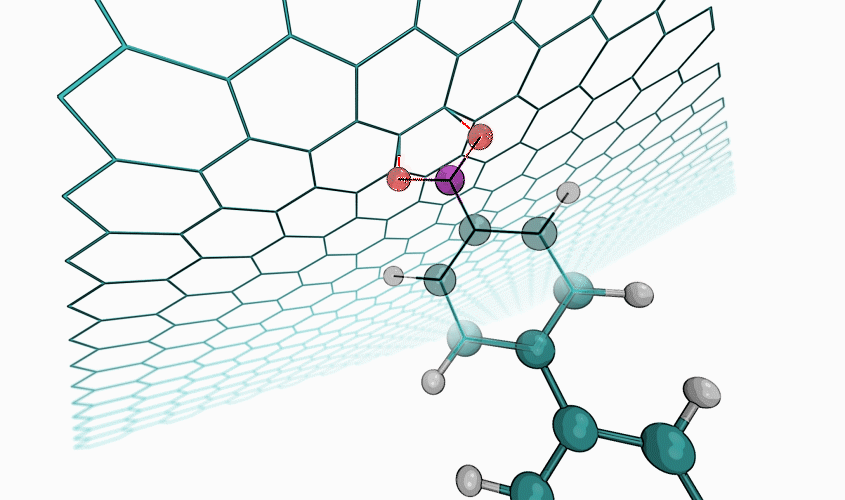
Overview
The GRAFEL research project focuses on graphene-based flexible electronics and aims promote the field to a level of maturity that accompanies establishing procedures for (a) the adjustment of material properties by design, (b) the chemical synthesis of components, and (c) rudimental device fabrication as proof of concept.
Read MoreResearch Staff
Group Members
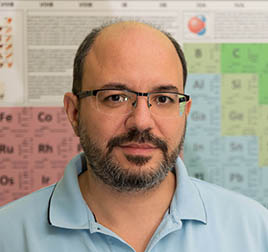
Emmanuel N. Koukaras
Prof. Emmanuel N. Koukaras is an Assistant Professor in Applied Quantum Chemistry and a member of the Laboratory of Computational and Quantum Chemistry at the School of Chemistry of the Aristotle University of Thessaloniki (AUTH).
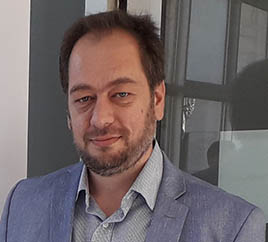
Emmanuel Klontzas
Dr. Emmanuel Klontzas received his B.S. and M.S. at the Department of Materials Science and Engineering of the University of Ioannina, Hellas and completed his PhD at the Department of Chemistry of the University of Crete, Hellas (2009).
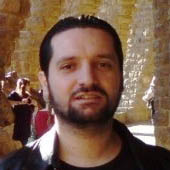
Ioannis Skarmoutsos
My specialization is in the field of the computational modelling (using classical and quantum molecular simulations) and rational design of porous materials and green sustainable solvents used in several chemical and industrial processes.
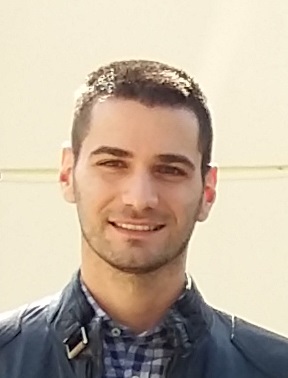
Dimitrios Andreou
Dr. Dimitrios Andreou is a Postdoctoral Researcher specialized in Synthetic Organic Chemistry. He is a member of the Laboratory of Organic Chemistry of the School of Chemistry of the Aristotle University of Thessaloniki.
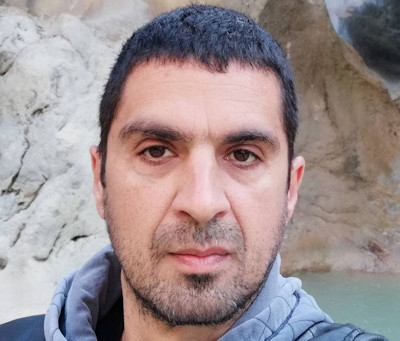
Ioannis Polyzos
Dr. Ioannis Polyzos is a Postdoctoral fellow at Aristotle University of Thessaloniki (AUTH) since 2020. He received the B.Sc. in Physics and the M.Sc. in Physics with emphasis in Lasers from the University of Patras, Greece in 1997 and 2000 respectively. He obtained his PhD from the same University in 2006.
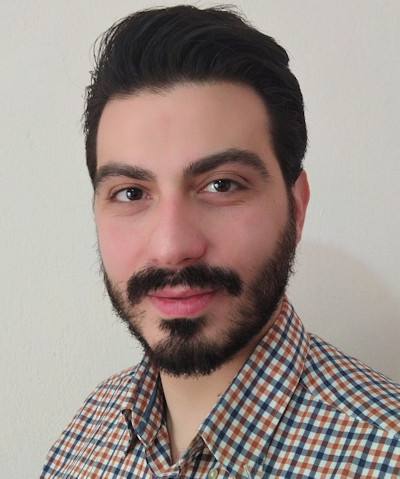
Ioannis Karfaridis
Dr. Dimitrios Karfaridis is a Postdoctoral Researcher specialized in materials characterization via X-ray based methods. He is a member of the Laboratory of Advanced Materials and Devices of the School of Physics of the Aristotle University of Thessaloniki.
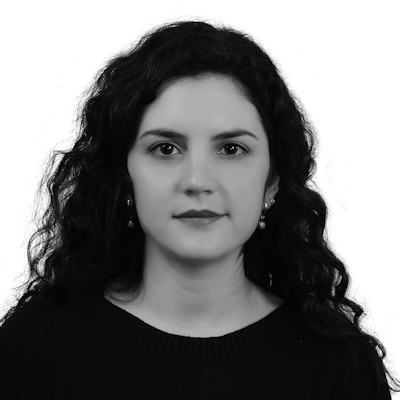
Emilia Papasouli
I am a PhD student in Organic Synthetic Chemistry at the Laboratory of Organic Chemistry of the School of Chemistry of the Aristotle University of Thessaloniki.
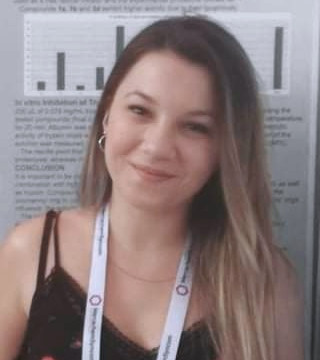
Matina Douka
I am a PhD student in Computational and Quantum Chemistry at the Laboratory of Quantum and Computational Chemistry of the School of Chemistry of the Aristotle University of Thessaloniki.

Rafael Lingas
I am a PhD student in Computational and Quantum Chemistry at the Laboratory of Quantum and Computational Chemistry of the School of Chemistry of the Aristotle University of Thessaloniki.

Theopoula Asimakidou
I am a PhD student in materials characterization via X-ray based methods. She is a member of the Laboratory of Advanced Materials and Devices of the School of Physics of the Aristotle University of Thessaloniki.
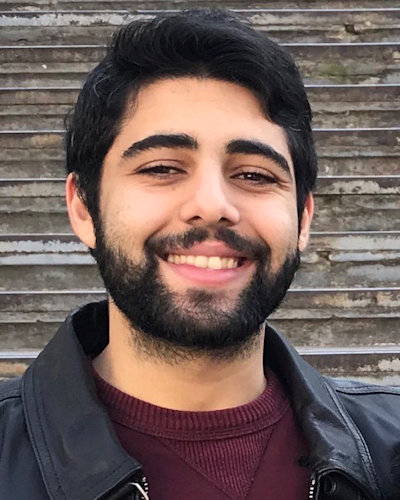
Kyro Odysseas Kosmatos
I am a Postgraduate student in Computational and Quantum Chemistry at the Laboratory of Quantum and Computational Chemistry of the School of Chemistry of the Aristotle University of Thessaloniki.
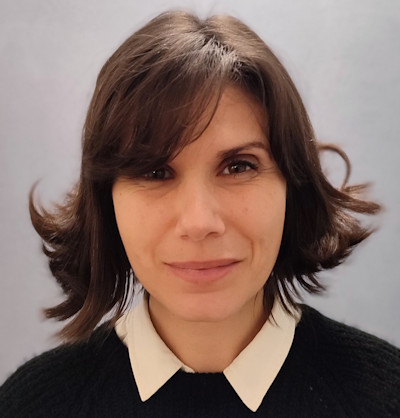
Aikaterini Gounari
I am a Postgraduate student in Computational and Quantum Chemistry at the Laboratory of Quantum and Computational Chemistry of the School of Chemistry of the Aristotle University of Thessaloniki.
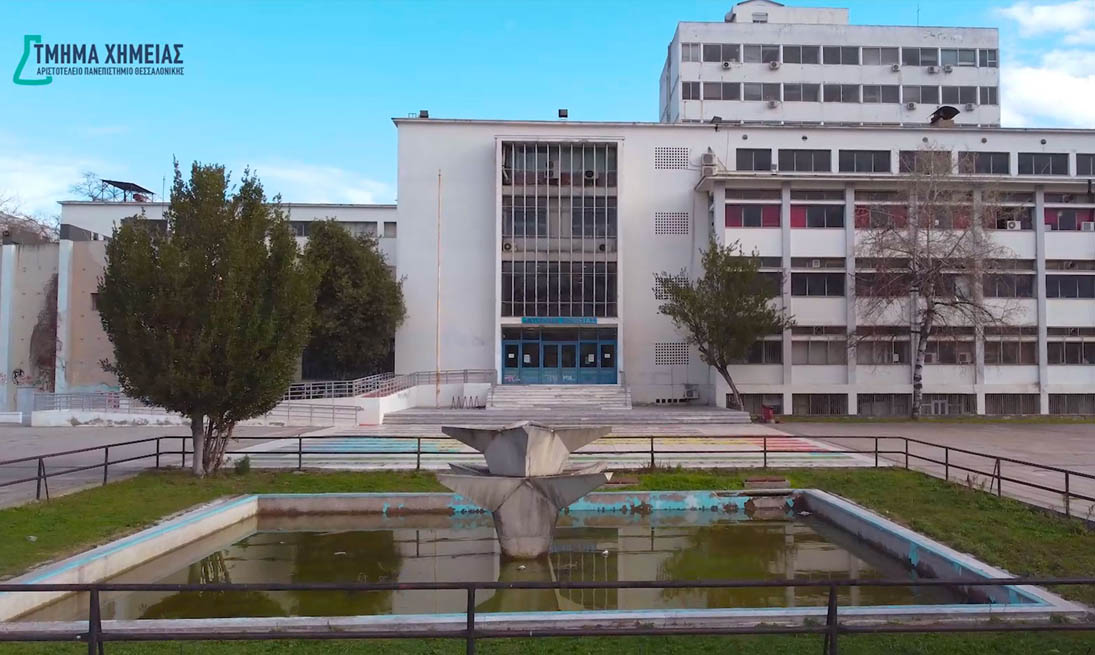
Aristotle University of Thessaloniki
The Aristotle University of Thessaloniki is the largest university in Greece. The main campus is located in the centre of the city of Thessaloniki, and covers an area of about 33.4 hectares. It comprises 10 faculties which consist of 40 schools and 1 single-School Faculty.
Some educational and administrative facilities are located off campus for practical and operational reasons. A number of these facilities are located outside the city of Thessaloniki or even in other cities.
About 88.283 students study at the Aristotle University, 77.198 in undergraduate programmes and 6.588 in postgraduate programmes. There are also 3.952 at Doctoral level).
There are 1.682 faculty members. There are also 311 members of the Special Laboratory Teaching Personnel (S.L.T.P.).
Faculty members are also assisted by 144 members of the Special Technical Laboratory Personnel (S.T.L.P.).
The administration office consists of 278 permanent employees and 256 employees under a private law contract of indefinite duration.
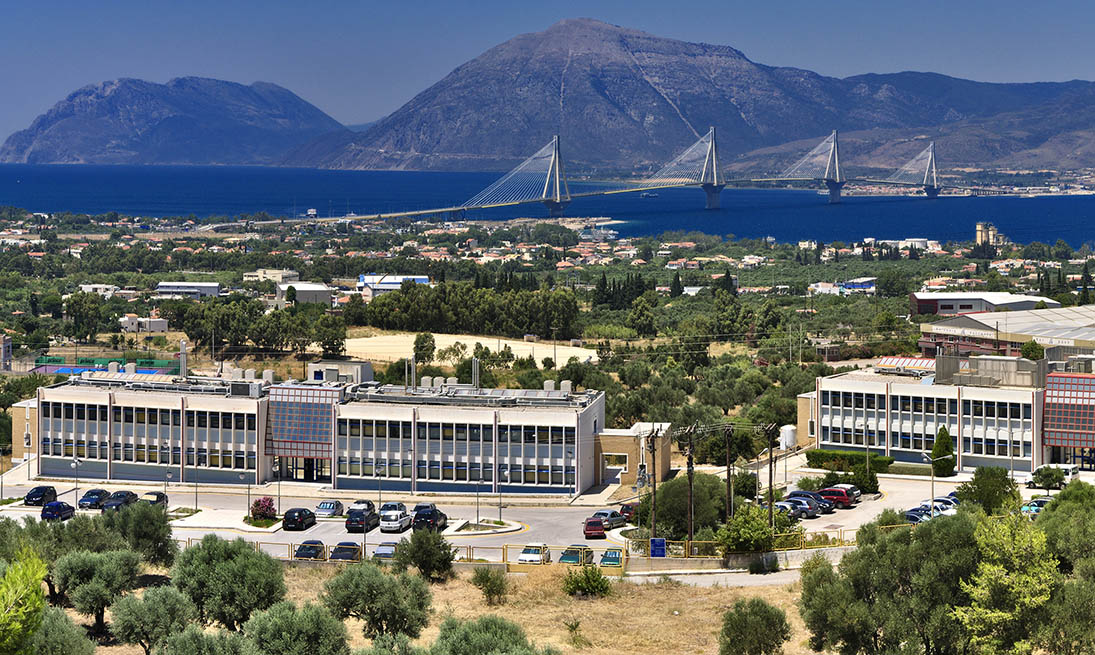
Institute of Chemical Engineering Sciences
The Institute of Chemical Engineering Sciences (ICE-HT) was established in 1984, as an Independent Academic Institute (initially under the name Institute of Chemical engineering and High Temperature Chemical Processes). In 1987 ICE-HT became one of the founding Institutes of FORTH (Foundation for Research and Technology, Hellas).
FORTH comprises eight Research Institutes (5 in Heraklion, 1 in Rethymnon, 1 in Chania, and 1 in Patras) and has been classified in all previous research assessments as "the first Research Centre in the whole of Greece". FORTH reports directly to the General Secretariat for Research and Technology (GSRT) of the Hellenic Ministry of Education, Research and Religious Affairs. The eight Research Institutes of FORTH cooperate creatively as an integrated network for RTD.
During its operation ICE-HT has been developed into a world-leading centre for the advancement of high quality scientific knowledge in the fields of chemical engineering sciences. Currently, ICE-HT runs ca 46 RTD projects in cooperation with numerous industrial enterprises, universities and research institutes from Greece, as well as from other EU-member countries, USA, Japan, etc. These projects are funded by national and EU competitive R&D programs, and also directly by industrial enterprises.
AIXTRON BlackMagic
CVD process can be successfully used for the production of high quality graphene.
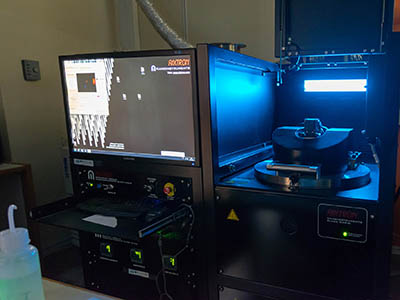
Accelerated Environmental Aging
This chamber provide accelerated ageing by alternating cycles of temperature, humidity and UV radiation.
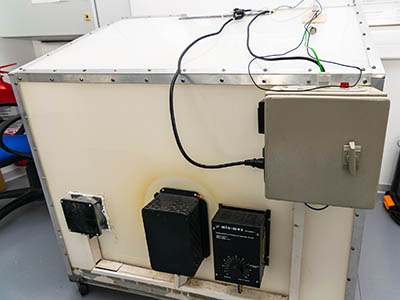
Ultra High Vacuum System
The scope of this work-package is the creation of defects in graphene created with a controllable manner.
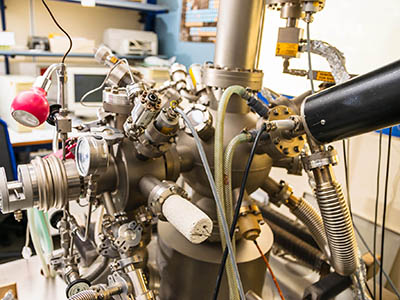
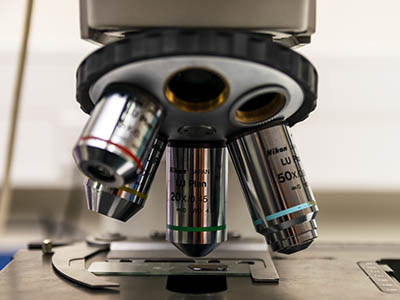
Characterization & Testing
The Facilities include a wide range of available equipment for materials characterization and testing such as: state-of-the-art AFM, TERS Raman, Accelerated Ageing Chamber, and more.
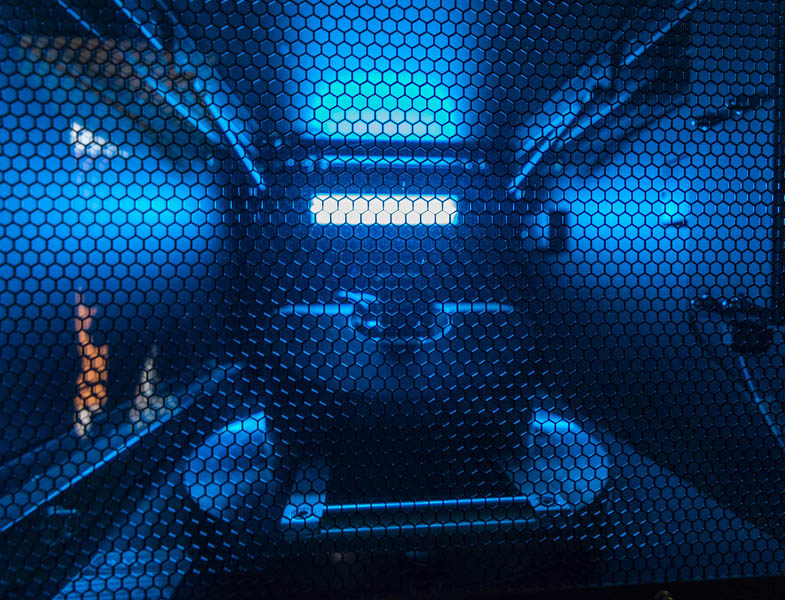
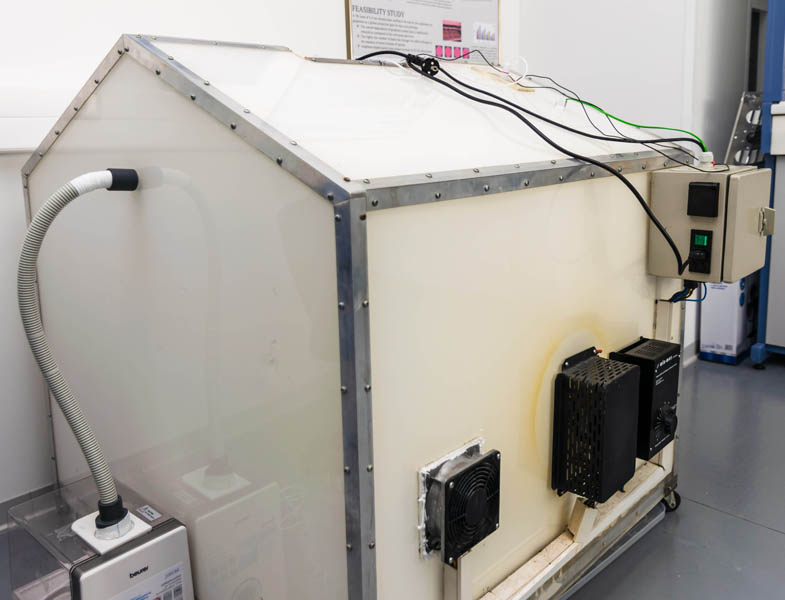
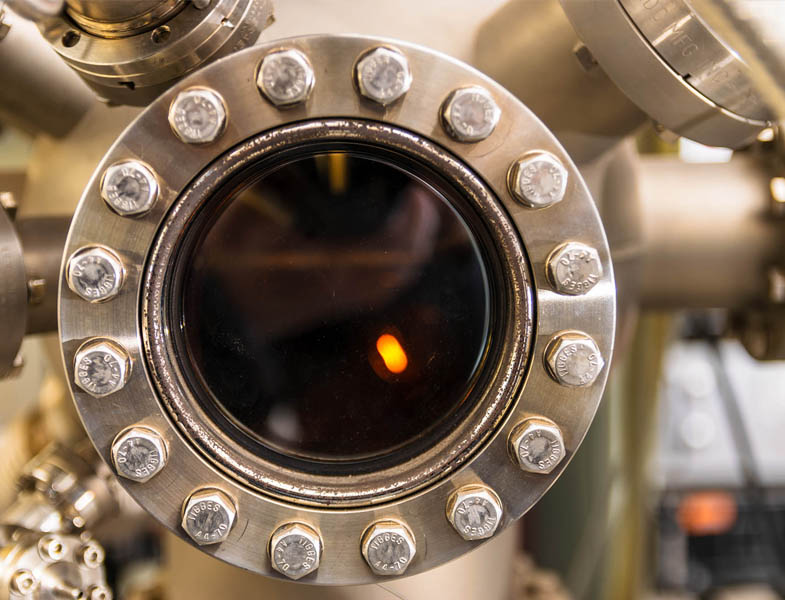
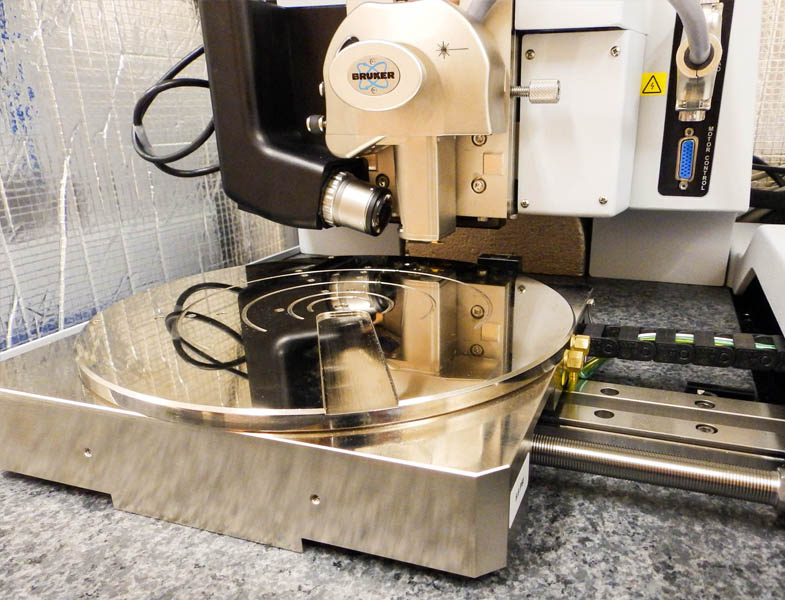
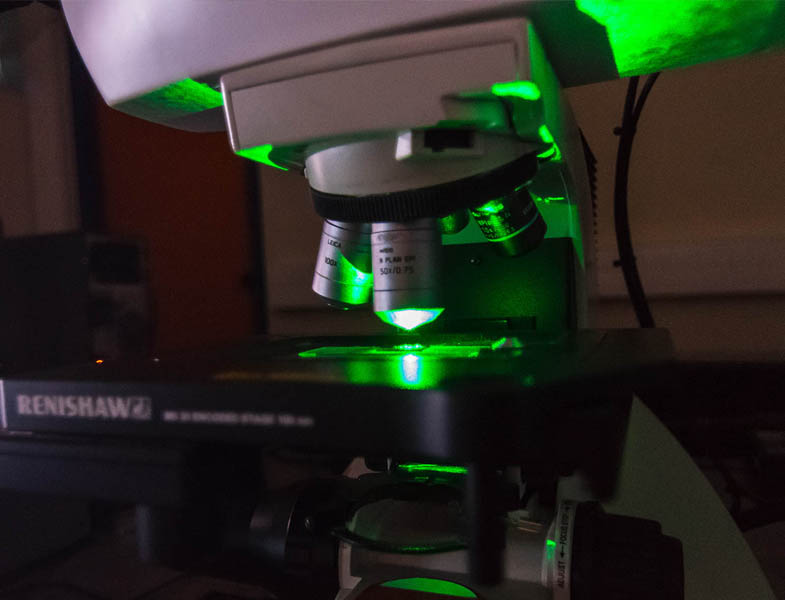
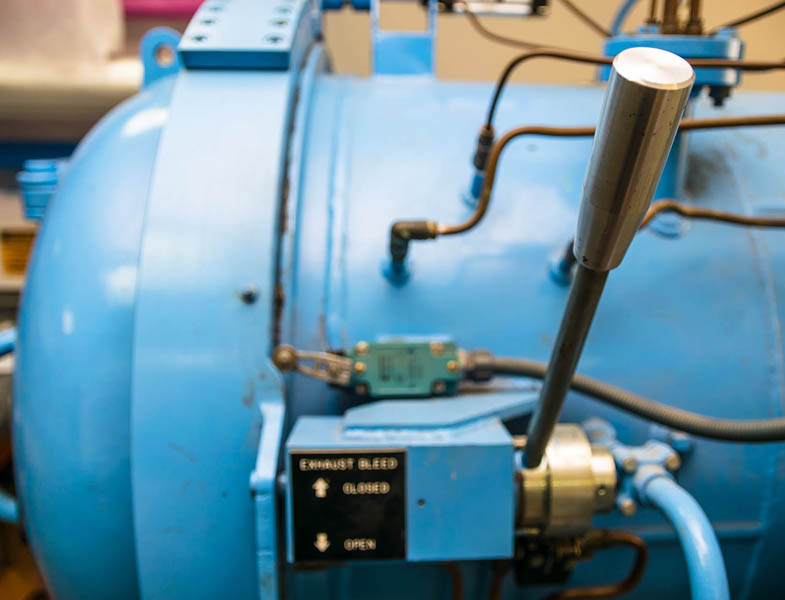
AFM Dimension Icon Bruker
This AFM is the most innovative, versatile and flexible platform for morphological investigation of materials.
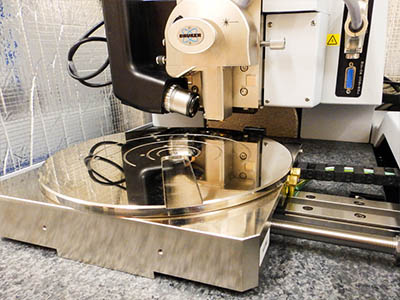
Renishaw Raman
It is simple to operate yet delivers outstanding performance and reliable results.
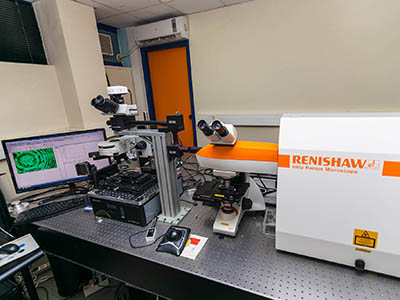
Semi-Industrial Autoclave
Our autoclave chamber provides a pressurised environment of internally heated air for curing composite materials.
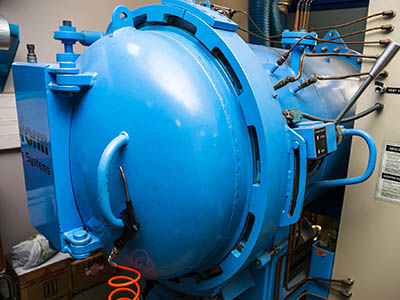
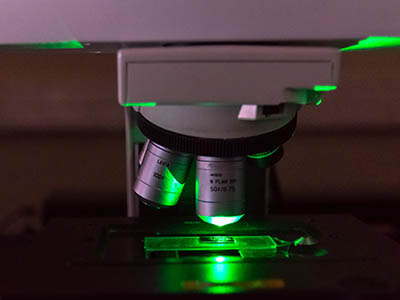
Facilities: Fabrication
Equipment for fabrication processes are available such as state-of-the-art CVD, semi-industrial Autoclave, and more.
You can find us at the School of Chemistry of the Aristotle University of Thessaloniki (AUTh), located at the center of the city of Thessaloniki, Greece.
You can also use our Google Maps Placemark.
Find our full address and contact information at the Contact Us section.
Yes. We have a modest network of collaborating groups worldwide on everything graphene, metal-organic frameworks, and organic photovoltaics. This spans experimental, computational, and theoretical aspects of these materials, with ties to well known Universities and indirect ties to the Industry.
If you have a research project or a simple research collaboration in mind you may go to the Contact Us section for our contact information.
For the time, no.
The GRAFEL project has come to an end. Though the research is continuing at the School of Chemistry of the Aristotle University of Thessaloniki, Greece, there is presently no funding available for either PhD or postgraduate students.
If the situation changes we will issue a post in the News section News section, as well as at the Announcements list of the Aristotle University of Thessaloniki.


